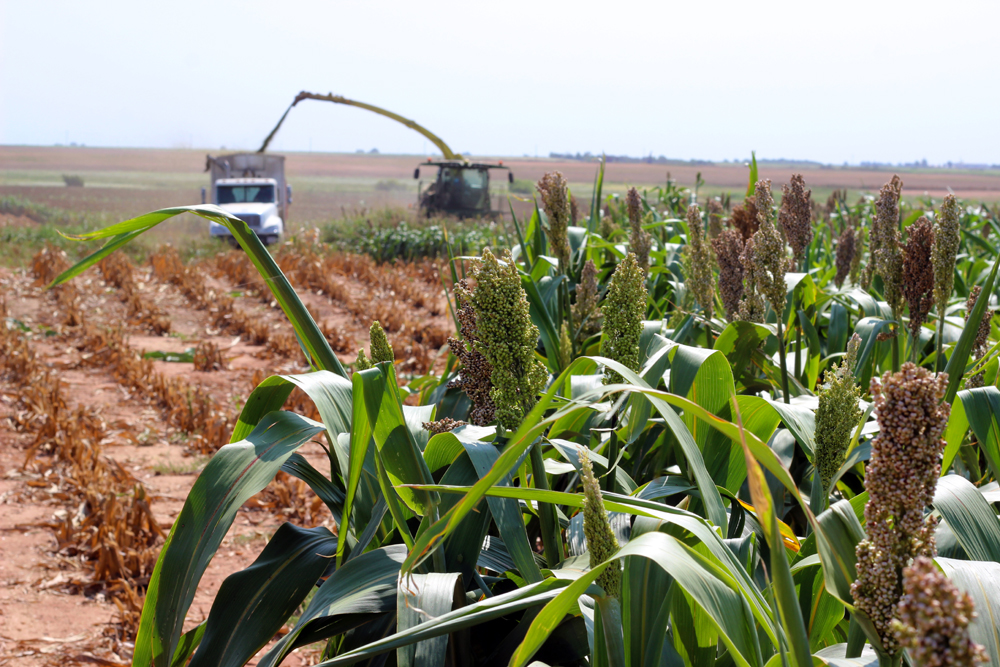With harvest season ramping up, the Nebraska Corn Board and the Nebraska Corn Growers Association are encouraging everyone to slow down and dedicate an extra moment to ensure the safety of both themselves and fellow travelers on the road.
Remember, no one can take your place.
Nebraska Corn looks to promote safety during National Farm and Safety Week Sept. 17 to 23.
Agriculture remains one of the most important, yet unpredictable and dangerous lines of work. Farmers are susceptible to various injuries, both life-threatening and non-life threatening. According to the Centers for Disease Control and Prevention, in 2021, transportation incidents, which include tractor overturns and roadway crashes, were the leading cause of death for farmers and farm workers. More than 11,880 non-fatal agriculture-related injuries are reported each year, with many other incidents going unreported.
“As farmers prepare for the busy harvest season, we can sometimes get in a hurry to get things done,” said John Krohn, District 7 director for the Nebraska Corn Board and farmer from Albion. “It is important to take the extra time to slow down and be safe because it can truly make a difference.”
Harvest is a stressful time for farmers due to unpredictable weather and the short timeline they have to get their crops out of the field. It is imperative that farmers take care of themselves both physically and mentally to ensure a safe and bountiful harvest.
“Harvest is one of the busiest seasons for farmers and there are a lot of different details we need to keep track of,” said Ethan Zoerb, Nebraska Corn Growers Association grower services committee chair and farmer from Ravenna. “To ensure a safe harvest season for all, take time for safety. We know the work we do can be dangerous, but remember your family wants you to come home at the end of the day.”
Not only are farmers at risk for injury, but so are those who may be traveling in rural areas this harvest season. Nebraska Corn encourages everyone to slow down and be aware of the increased farm traffic. In rural areas, parents of small children should develop safety rules to prevent youth from playing on or near harvest equipment, regardless the time of year.
Look at these other safety tips to ensure that you make it home safely because no one can take your place.
Equipment Safety
- Be careful when approaching harvest equipment. Approach equipment from the front and get operators attention.
- Ensure the harvesting equipment is fully stopped and disengaged before approaching.
- Do not go near any unguarded or otherwise running machinery.
- Avoid pinch points between equipment—such as tractors with grain wagons. Visibility can be limited, and serious injury can occur.
Entanglement Hazard
- Before unplugging any equipment, disengage power and remove energy from the equipment.
- Never pull or try to remove plugged plant material from an operating machine.
- Never remove shields. Keep in place to avoid entanglement when working around equipment.
Fall Hazard
- Be careful when climbing on or off equipment.
- Be alert and extremely careful when working in wet or slippery conditions.
- Keep all walkways and platforms open and free of tools, dust, debris or other hazardous obstacles. Clean all walkways and platforms before use.
- Wear clothing that is not baggy or loose. Also wear proper non-slip, closed toe shoes.
- Use grab bars when mounting or dismounting machinery. Face machinery when dismounting and never jump from equipment.
- Never dismount from a moving vehicle.
Fire Prevention
- Carry a fire extinguisher with you in your vehicle (A-B-C, 5- or 10-pound).
- Check bearings regularly to prevent overheating and the chance of fire. Remove build-up or dust from equipment.
Grain Cart Safety
- Never exceed maximum weight limits on grain carts. As weight increases, grain carts can be more difficult to control.
- Load grain bins evenly to distribute weight and prevent weaving or instability across the grain bin.
- Inspect grain bin tires and replace any worn or cracked tires.
Grain Bin Safety
- Check the air quality before entering an enclosed space.
- If entering a bin, wear a harness attached to a secure rope.
- Never work alone.
- Never allow children to get too close or inside the bin.
- Wear a dust filter or respirator when working in bins.
- Stay out of bins when equipment is running.



